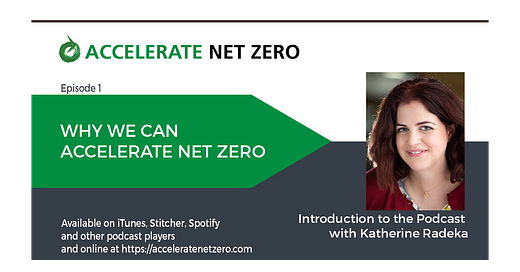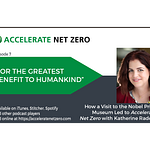In this episode, the host, Katherine Radeka, shares why she decided to launch this podcast, and why you should listen if you are interested in accelerating the transition to a Net Zero world. In the …
Listen to this episode with a 7-day free trial
Subscribe to Accelerate Net Zero to listen to this post and get 7 days of free access to the full post archives.











